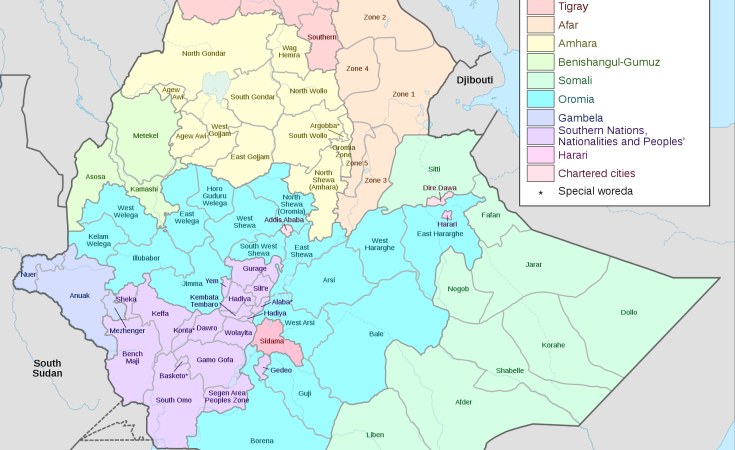Addis Ababa, Ethiopia — The Ethiopian Human Rights Commission has called for an end to what it calls a rising trend of enforced disappearances in the country. The Ethiopian government has yet to respond to the commission's report, which says at least 12 people have been arrested or abducted under unclear circumstances.
In a report released June 5, the Ethiopian Human Rights Commission said the enforced disappearances have happened across Amhara and Oromia regions, as well as in the capital, Addis Ababa.
Imad Abdulfetah, regional director for the commission, said the disappearances seem to be related to the war in the northern Tigray region, which ended last year following an African Union-brokered peace deal, and ethnic conflicts elsewhere.
"Primarily, these became more common in the aftermath of the conflicts in the country," Abdulfetah said. "These incidents are connected to the conflict in one way or the other. So, this one year or a half -- at most not more than two years -- since this became widespread."
The commission's report says victims of enforced disappearances include members of the Ethiopian National Defense Force, as well as opposition political parties.
The Oromo Federalist Congress (OFC), an opposition political party, said four of its members have gone missing over the past few years.
Party chief Merara Gudina said attempts to locate them have failed.
"It looks to me like the government has decided to rule by force," Gudina said. "And we have been meeting and talking with government officials, but they have not taken any meaningful steps."
The OFC's secretary-general, Tiruneh Gamta, said the party has confirmed the death of Melesse Chala, a local-level party official who was missing for more than two years.
"A person who ... had closed his eyes, and prepared his dead body, has informed us," Gamta said. "So, even though the government has not publicly announced this, we have heard from others."
Such actions hurt the democratic process and push people to take up arms instead, said Merera.
"If the government is narrowing and stifling the political playground, those who have the capacity and the force will think, 'Let me go into the forest and try my luck instead of being imprisoned and wasting away."'
Victims of these enforced disappearances sometimes show up weeks or months later, still alive, but in locations far from where they were last seen, and often in poor physical condition, according to the report.
The government-established commission said it is investigating allegations that some of the victims were tortured.
The Rights Commission has called for the Ethiopian government to adopt and ratify the International Convention for the Protection of All Persons from Enforced Disappearance in order to ensure the protection of civilians.


